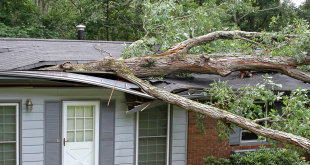Leaving a spare key under the doormat seems like a convenient solution for family members, guests, or even ourselves when we accidentally lock ourselves out. I mean, who hasn’t done it at least once? However, this seemingly harmless practice could have serious repercussions, particularly when it comes to your home insurance. If your home is burglarized, and the intruder gains access using a hidden key, your insurance claim might be denied. Sounds crazy, right? But let’s explore the reasons why and, more importantly, offer some safer alternatives because, let’s face it, getting locked out is a pain.
The Lure of Convenience: Key Under the Doormat
Why We Do It
The primary reason people hide keys is pure convenience. It eliminates the need to coordinate schedules for key exchanges (ugh, the worst!) or worry about being locked out. It offers a quick fix for shared access, especially if you’ve got kids or frequent visitors. It’s like, “Here’s the key, don’t bother me!”
Common Hiding Spots and Their Risks
Besides the doormat – the absolute classic, isn’t it? – other popular hiding spots include under flower pots, in those oh-so-realistic fake rocks, or perched precariously above doorframes. But, and this is a big but, burglars are, unfortunately, well aware of these common locations. They’ve seen it all before. It’s practically the first place they look. Think of it as the burglar’s version of “Where’s Waldo?” except Waldo is your house key.
How Hidden Keys Impact Home Insurance Claims
Breach of Security Obligations
Home insurance policies, those delightful documents we all skim through, often contain clauses that require homeowners to take reasonable precautions to protect their property. Leaving a key in an obvious hiding spot? Yeah, that can be considered a breach of these security obligations. It’s like telling the insurance company, “Hey, come on in!” Probably not the best idea.
The Concept of “Forced Entry”
Insurance companies, bless their hearts, often require evidence of “forced entry” to validate a burglary claim. Makes sense, right? They need proof. If an intruder uses a hidden key, well, there’s no sign of forced entry. Nada. Zilch. This makes it incredibly difficult to prove the burglary actually occurred. It’s a “he said, she said” situation, and you’re probably going to lose.
Potential Denial of Claims
And here’s the kicker: if your insurance company determines that the burglary was facilitated by your negligence (i.e., leaving a key in an obvious hiding spot), they may deny your claim. Ouch. That could leave you responsible for covering the cost of stolen items and any damages to your property. Talk about adding insult to injury! Who needs that kind of stress? Nobody, that’s who.
Safer Alternatives to Hiding a Key
Key Safes
A key safe is basically a small, secure box that’s mounted on an exterior wall. It can be opened with a combination or a key. Think of it as Fort Knox for your spare key. The trick is to choose a reputable brand and make sure it’s properly installed in a discreet location. Don’t put it right next to the front door, okay?
Smart Locks
Smart locks are pretty darn cool. They allow you to unlock your door remotely using a smartphone app or a keypad. You can also create temporary access codes for guests or service providers. No more physical keys to worry about! Plus, it feels super James Bond-ish, doesn’t it?
Trusted Neighbors or Family Members
Entrusting a spare key to a reliable neighbor or family member is a classic, but still a pretty solid, safer alternative to hiding it outside. This eliminates the risk of a burglar finding it. Just make sure you really trust them, okay? No shady characters!
Professional Key Holding Services
Did you know this was even a thing? Some companies offer professional key holding services. They store your spare key securely and can provide access to authorized individuals upon request. It’s like a concierge service for your key! Fancy!
Reviewing Your Home Insurance Policy
Understanding Your Policy’s Security Requirements
Alright, time for some light reading (said no one ever). Carefully review your home insurance policy to understand the specific security requirements. Pay attention to clauses related to forced entry, negligence, and preventative measures. It’s boring, I know, but it’s better to be safe than sorry.
Consulting with Your Insurance Provider
If you have any questions or concerns about your policy (and let’s be honest, who doesn’t?), contact your insurance provider. They can provide clarification on your coverage and offer advice on how to protect your home. That’s what they’re there for, after all!
So, ditching the doormat key might seem like a small thing, but it’s a smart move for your home security and your insurance coverage. There are way better options out there, and understanding your policy is key (pun intended!). Give those alternatives a try and maybe even share your experiences. Stay safe out there!
 seeme
seeme




